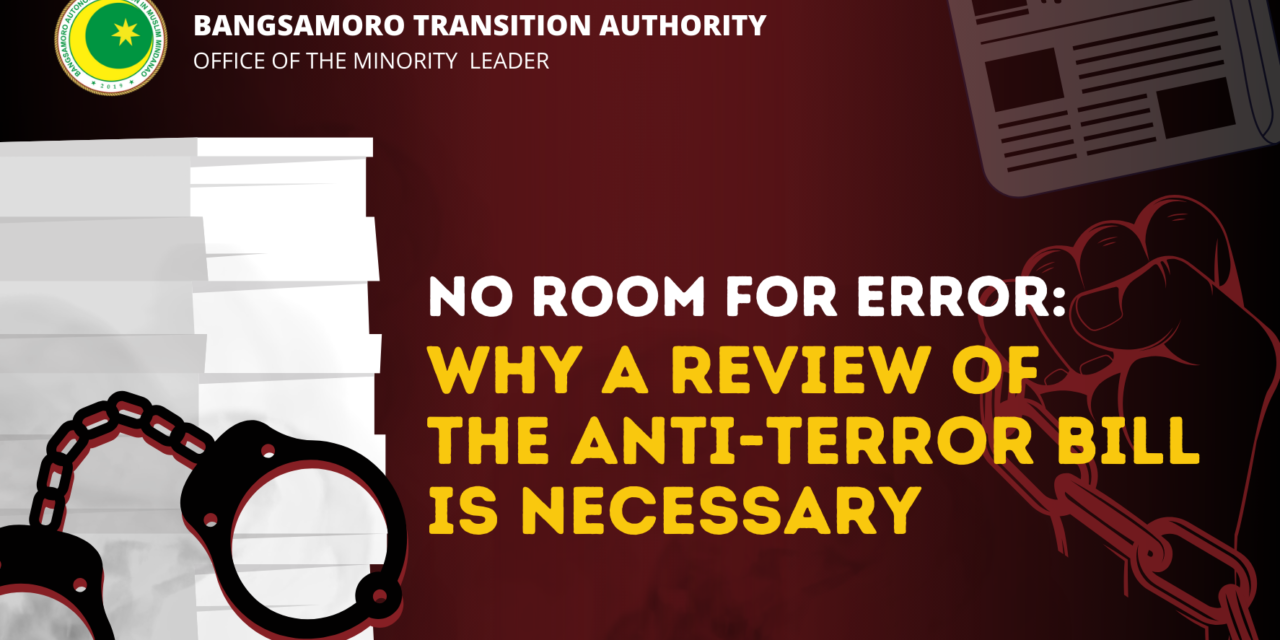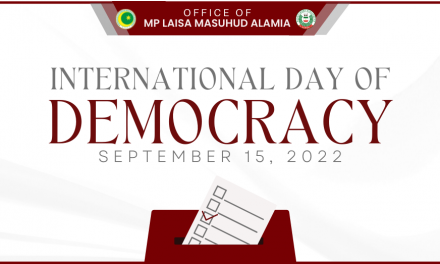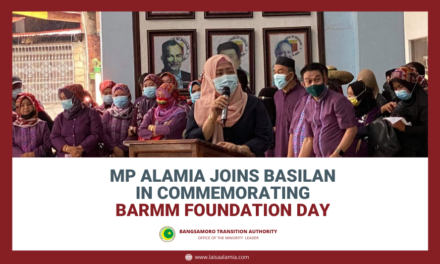Unconstitutional provisions, vagueness, and susceptibility to abuse. These are the three main points that ground the position of the Office of the Minority Leader regarding the proposed Anti-Terrorism Bill, as the office calls for consultations with key stakeholders, including civil society organizations, regarding issues surrounding the bills that have been passed in the Senate and the House of Representatives.
The proposed legislation, which will replace the country’s current anti-terror law, the Human Security Act of 2007, has faced opposition from the public, including human rights activists, for containing vague provisions that may be used to classify public and collective acts of protest as acts terrorism. Labor strikes, rallies, and mass gatherings are among those that could be at risk of being affected by the proposed legislation, as it stifles dissent with threats of steep punishment.
Some of the issues raised in the position paper are undue deprivation of property, undue invasion of privacy, and undue deprivation of liberty, as state forces are allowed to act under unclear and vague standards which risk violating constitutionally protected human rights.
The proposed legislation also contains ambiguous provisions regarding religious teachings and cultural practices, which risks further discrimination and marginalization based on one’s religious and cultural background.
An effective counter-terrorism penal law must not encroach on fundamental freedoms enshrined in the Constitution, clearly distinguishing conduct that is lawful from that which is unlawful to avert any misinterpretation and arbitrary or discriminatory enforcement, and must provide individuals adequate notice of their legal obligations so that they can govern their behavior accordingly.
A resolution was also filed on June 5 expressing “grave concern” over the passage of Senate Bill No. 1083 and House Bill No. 6875.
Part of the resolution states that “the stories and experiences of the Bangsamoro people, particularly on their decades-long struggle for peace, provide evidence that counter-terrorism strategies with little to no regard for human rights cannot win the ideological battle against terrorism, nor can it suppress violent extremism.”








